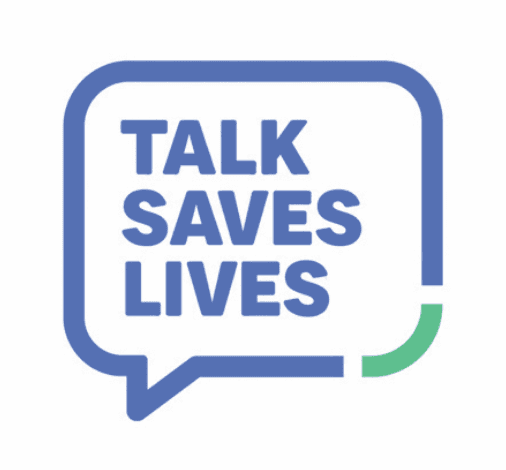Education
Creating a Safer World Through Education
AFSP’s prevention education and partnership programs, delivered by our local chapters throughout the country, inform people everywhere – families, friends, neighbors, and coworkers – of what they can do to make a difference in their communities. Building on what we’ve learned from research, and using the latest data, AFSP’s evidence-informed education programs give a clear understanding of what leads someone to consider suicide, providing participants with practical knowledge of how to spot the warning signs, talk safely and compassionately to those they care about, connect people to help and resources, and support at-risk individuals following an attempt.
This year, as the pandemic continued, AFSP created specialized virtual presentations, as well as made education programs like Talk Saves Lives, More Than Sad, and It’s Real available virtually. By providing these and other AFSP signature education programs, 1,300 presentations were delivered virtually reaching 30,000. In this way, we continued to provide life-saving information to individuals and groups throughout the country, in support of #MentalHealth4All.
Through this experience, and what we learn through innovative new ways of reaching people everywhere, our educational initiatives will continue to evolve and become stronger than ever going forward.

and resource events
Talk Saves Lives™
Our signature education program, Talk Saves Lives: An Introduction to Suicide Prevention, covers the general scope of suicide, providing participants with a clear understanding of this leading cause of death, including the most up-to-date research and data on suicide prevention. Participants gain an understanding of the health, historical, and environmental factors that put individuals at risk, as well as guidance on behaviors to look for, and how to get help for someone in a suicidal crisis. The program also enlightens people to the protective factors known to proactively lower suicide risk.
Talk Saves Lives reaches a wide range of audiences, with specialized modules that have been created for particular segments of the population, including older adults, workplace settings, firearms retailers and range owners, and LGBTQ audiences. The standard presentation is also available in Spanish.
Since its launch in 2015, Talk Saves Lives has reached over 175,000 people across the country.
As the pandemic continued, AFSP adapted this important program to a virtual setting reaching over 24,000 participants.
and resource events

Talk Saves Lives™: An Introduction to Suicide Prevention in the LGBTQ Community
We all have a role to play in preventing suicide, and those in the LGBTQ community may face additional challenges and barriers to help because of discriminatory factors.
The new program, Talk Saves Lives: An Introduction to Suicide Prevention in the LGBTQ Community, gives participants essential and lifesaving understanding of topics including:
- the latest research related to LGBTQ suicide prevention
- suicide risk and its unique considerations in LGBTQ communities
- how to recognize suicide risk factors and warning signs for LGBTQ people
- how to seek and offer support for yourself or others
- crisis resources and services for the LGBTQ community
- what communities can do to support LGBTQ people
New Programs Created During the Pandemic
Enhancing Mental Health During Covid
Our new program, Enhancing Mental Health During Covid, created specifically to reach audiences during this unprecedented time, provides a personalized introduction to AFSP as an organization, and lets people know how to best make use of the programming and resources made possible by their local AFSP chapter.
Designed for general audiences and those age 15 and up, and available in both English and Spanish, the program meets people where they are today, showing them how they can put a focus on their own mental health, and support those they care about. The presentation includes practical self-care tips, and helpful resources we can all use as we take our mental health seriously and get through the pandemic, together.
Introduction to Supporting Those At Risk
When someone attempts suicide or experiences suicidal thoughts, it can be difficult to know how to best support them in their recovery. It is absolutely vital that we educate and provide support to those who are caring for someone at risk.
Developed to address this important topic, particularly during the pandemic when a virtual program was needed, Introduction to Supporting Those At Risk shares information with family members, friends and others on how to provide support to those with lived experience. The program covers:
- understanding behaviors and experiences related to suicide
- the recovery process for someone following a suicide attempt
- strategies for supporting a loved one’s recovery
- the importance of self-care for oneself, when supporting someone else
It’s Real: Teens and Mental Health
Teens experience a number of factors related to mental health as they develop into adults. The new program It’s Real: Teens and Mental Health – designed for high school students ages 14 or older – takes these considerations into account, as participants learn how best to care for their own mental wellness through a time of growth and challenges.
This program teaches youth to pay attention to the unique ways their mental health works, and the ways it can be optimized, including both positive and negative influences on their mental health and wellbeing. By learning about these patterns, participants can be empowered to make healthy decisions to improve their resilience and mental health.
Attendees learn:
- what mental health is and how it’s both similar to, and different from, physical health
- the interaction between brain, body, and life circumstances
- how to notice the signs of someone needing help
- tips and strategies for having a caring conversation with someone they are worried about
- methods of self-care for mind, body, soul, and surroundings
- how reaching out to a trusted adult can make all the difference
- examples of resources they can use for support
The program includes brief video narratives from Gen Z influencers, authentically sharing their own experiences with mental health.